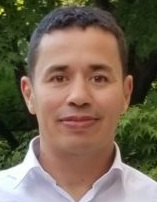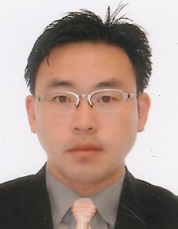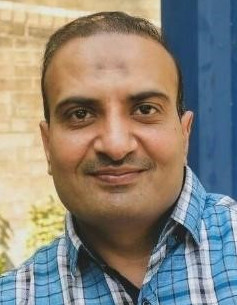Description
Over the years, the use of the Internet of Things (IoT) has come to dominate several areas, e.g., improving our lives, offering us convenience, and reshaping our daily work circumstances in the process. Ambient intelligence (AmI) refers to the ability of devices to interact seamlessly with their surroundings. The increased use of IoT in ambient intelligence has led to a heightened concern for cybersecurity. Hackers could exploit vulnerabilities in the software or firmware of IoT devices to gain control of the devices or the networks they are connected to. They could also use ambient intelligence systems to collect sensitive data from IoT devices. In order to protect these devices, it’s essential to understand the various types of attacks that are possible and deploy appropriate security measures. In recent years, Artificial Intelligence (AI) has got a lot of attention, especially for the success of deep learning to address problems that were considered hard before.
The proposed special session provides a forum for bringing together researchers from academia and industry to explore and present their findings in Artificial Intelligence, cybersecurity issues of IoT, and AmI. The participants are encouraged to discuss the theories, systems, technologies, and approaches for testing and validating them on challenging real-world, safety-critical applications. Thus, suggested topics include, but are not limited to, the following points:
- Formal security and resilience analysis on AI.
- IoT security, trust, and trustworthy
- Secure and privacy-preserving IoT communications
- Cognitive models and bio-inspired AI.
- AI-assisted critical infrastructure security.
- Applied cryptography for IoT and AmI.
- Security and privacy of AmI.
- Applications of formal methods to IoT and AmI security.
- Blockchain for trustworthy AmI-based applications.
- IoT and embedded systems security.
- Cyber threat intelligence for IoT and AmI.
- Privacy-Preserving Machine Learning for IoT.
- Federated learning for IoT networks.
Important Dates:
- Paper submission:
13 June 2022August 1st, 2022 - Acceptance Notification:
8 July 2022August 16th, 2022 - Camera-Ready Paper Submission Deadline:
31 July 2022August 31st, 2022
Paper should be six (6) pages in length and follow the instruction provided for the main Conference. The conference allows up to two additional pages for a maximum length of eight (8) pages with payment of extra page charges once the paper has been accepted.
Chairs
Dr. Abdellah Chehri, University of Quebec, UQAC, Canada.

Dr A. Chehri is a professor and researcher at the University of Quebec- UQAC, Canada. He received his Ph.D. in 2009 from Laval University, Quebec, Canada. He joined the University of Ottawa in July 2009 as a post-doc fellow and member of Wireless Heterogeneous Sensor Networks in the e-Society WiSense project. From 2012 to 2014, he was with BLiNQ Networks in Kanata, where he was involved in the development and testing of dual-carrier NLOS TDD backhaul for small-cell 4G/LTE mobile applications. He worked as an adjunct assistant professor at the University of Ottawa and as a Manager of Next-Generation Network (NGN) /VoIP & Emerging Technologies at Bell Canada. Dr. Chehri received many prestigious awards, including, Dean’s Scholarship Award, Postdoctoral Studies (University Ottawa), Scholarship Fund to Support Success (Laval University), Japan Society for the Promotion of Science, MITACS, NSERC Postdoctoral Fellowship. Dr. Chehri served as a workshop co-chair of the first IEEE International Humanitarian Technology Conference (IEEE ICC 2012). He served as guest editor and severed as a technical reviewer for several international conferences and journals.
Dr. Gwanggil Jeon, Incheon National University, Korea

Dr. G. Jeon received his B.S., M.S., and Ph.D. degrees from Hanyang University, Korea, in 2003, 2005, and 2008, respectively. From 2009 to 2011, he was a postdoctoral fellow at the University of Ottawa, Canada, and from 2011 to 2012, he was an assistant professor at Niigata University, Japan. He is a professor at Xidian University, China and Incheon National University, South Korea. His research interests fall under the umbrella of image processing, deep learning, artificial intelligence, smart grid, and Industry 4.0.
Dr. Imran Ahmed, Institute of Management Sciences, Pakistan

Imran Ahmed (Senior Member, IEEE) received a Ph.D. degree in Computer Science from the University of Southampton, Southampton, U.K, in 2014. Currently, he is working as an Associate Professor with the Institute of Management Sciences Peshawar, Hayatabad, Peshawar, Pakistan. His research interests mainly include artificial intelligence, deep learning, machine learning, data science, computer vision. He has attended several international conferences in these areas. He has published numerous articles in refereed journals and conference proceedings, including IEEE Access, IEEE Transactions on Industrial Informatics, IEEE Internet of Things Journal, International Journal of Machine Learning and Cybernetics, IEEE/CAA Journal of Automatica Sinica, Journal of Ambient Intelligence and Humanized Computing, Multimedia Tools and Applications, Cluster Computing, IEEE Annual Ubiquitous Computing, Computer Communications, Electronics & Mobile Communication Conference (UEMCON), ACM/SIGAPP Symposium On Applied Computing at Pau, France, and many others. He has also been acting as a reviewer of journals, such as IEEE Transactions on Industrial Electronics, IEEE Access, Journal of Ambient Intelligence, Elsevier, etc.
Dr. Marco Anisetti, University of Milan, Italy

Dr. M. Anisetti is an Associate Professor at the Università degli Studi di Milano. Marco’s research interests are in the area of Computational Intelligence and its application to the design of complex systems and services. Recently, he has been investigating the adoption of Computational Intelligence and Artificial Intelligence techniques in the area of Security mechanisms for distributed systems, with particular consideration of Cloud and SOA security and software/service certification where Computational Intelligence provides new notions of ordering and matching of security properties. He is currently applying Big Data analytics to compute security and assurance metrics of Cloud systems and IoT systems in order to verify compliance to standards and policies. He has published several papers in journals and conference proceedings, and has served in the program committee of several international conferences.
Please submit your paper for this Special Session using the link to eWorks:
If you have any questions, please contact Dr. Abdellah Chehri: achehri@uqac.ca


